After almost a month of travel, I am catching up on articles I did not get to publish before I left! Let’s get started!
Dr Leo Igwe is on a US tour, raising awareness of his efforts to increase critical thinking in Africa. The Humanist Society of Santa Barbara (HSSB) hosted his visit in Santa Barbara.
Dr Igwe is a board member of the Humanist Association of Nigeria and of Humanists International. He holds a masters in philosophy and a doctoral degree in religious studies from the University of Bayreuth in Germany and wrote his doctoral thesis on witchcraft accusations in Northern Ghana. Igwe directs the Advocacy for Alleged Witches and Critical Thinking Social Empowerment Foundation.
HSSB President Judy Flattery introduced Igwe, noting that he was raised Catholic and attended seminary, intending to become a priest.
He was a featured speaker at the American Atheists convention in Philadelphia at the end of March.
Igwe began his talk noting that speakers love to talk about problems. He prefers to talk about solutions.
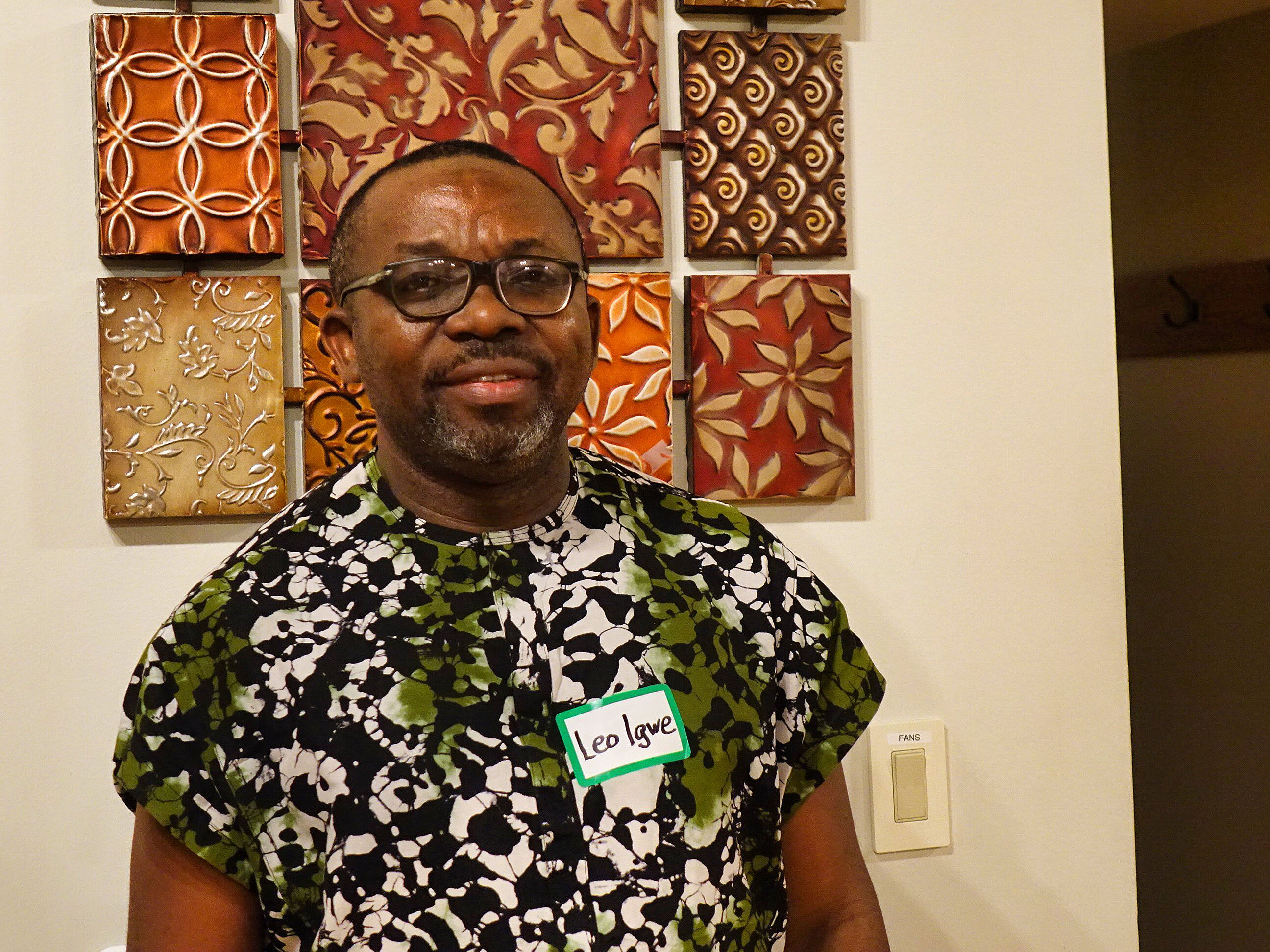
He kindly sent me a copy of a slightly edited version of his talk. I would like to quote directly from that text to convey the power of an awaking experience that he shared with us:
During my doctoral programme, we went on a field trip to Mali. We visited a mosque where we observed a prayer session. It was a period that members of this Muslim group gathered to pray and worship at a mosque that a Sheikh managed.
For hours, thousands of young people sat on the floor chatting prayer and Quranic verses, shaking and twisting their heads as if they were having fits. They repeatedly prayed and chanted Quranic verses in ways that grew into a crescendo, then they would suddenly stop. The leading imam would preach for a while and off they went again. After some hours, they broke to eat and later returned to continue the prayer and preaching session.
This process went on for weeks. While observing the session, I wondered how this way of praying would impact the minds of these youths and others across the region. Programmed to blindly believe, some of these youth end up fanatical or radical Muslims. They constitute a part of the mob that violently responds to supposed insults to the prophet of Islam, the desecration of the Islamic holy book, and other manifestations of extremism in different parts of Africa, and the world.
They engage in violent reactions to alleged blasphemy or apostasy. For instance, on February 1, the media in Nigeria reported the case of a Christian man, Habu. He was accused of blasphemy after he made a post on Facebook questioning the foundation of Islam, and the origins of the Quran. The man went into hiding after his car and house were set ablaze. Some Muslim students beat to death a Christian colleague, Deborah Samuel, after they accused her of making a post on the student Whatsapp platform that insulted the prophet of Islam.
Igwe went on to talk about what witch hunting is like in the current world of 2024. He talked of a woman buried up to her neck, threatened with being buried alive. He showed an image of what looks like a party with a bonfire. The “bonfire” is a human being burned.
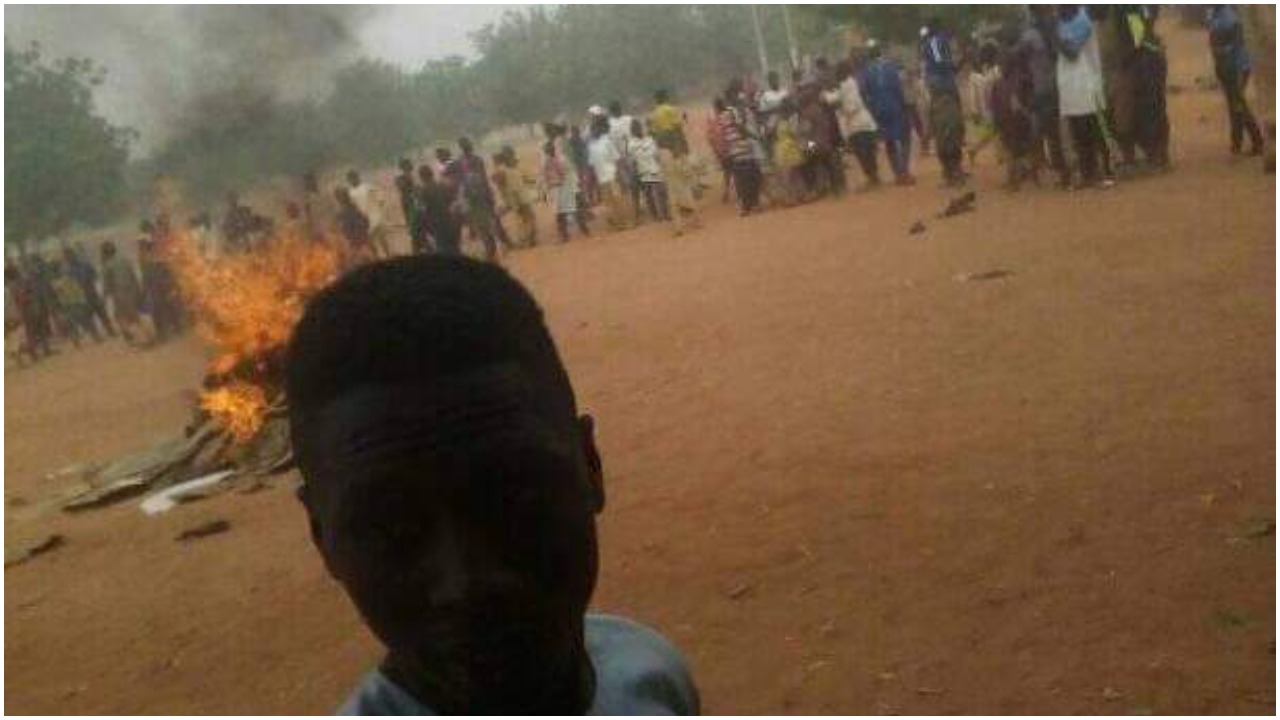
He has worked to end witch hunting and to hold the murderers accountable. But he sees a bigger issue: Increasing critical thinking so that people don’t get sucked into the nonsense that drives this horrific violence.
He said that this idea is already out there, but there is a lack of critical thinking resources in schools.
He said that schools in Africa focus too much on teaching English, French or other colonial languages and not focusing enough on the content. The schools also focus too much on having students memorize what they are told and just repeating it back, with little or no actual understanding.
The students see school as a way to get a piece of paper that lets them get a job. Often a menial job overseas.
He set out to develop critical thinking learning materials for primary school students. At the earliest grades it is OK if the students learn in their local language while they also learn English.
He wanted the learning of critical thinking to be fun and entertaining. He wants to ask students probing questions like, “How do you know that?”
Here are a couple of pages from the materials he created and uses:
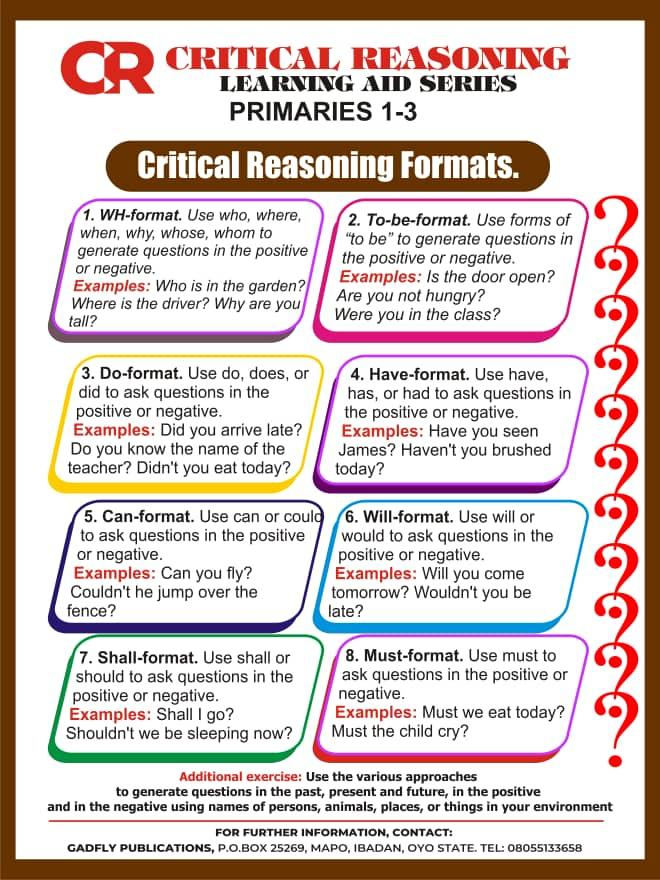

We have heard the term “brainstorming” as a way to generate solutions. Igwe thinks that another skill is just as important. He calls it “questionstorming”. Generating as many questions as possible.

He wants children to question everything. He wants them to understand that it can be OK to reply to a question with another question.
Current education systems are very much teacher centered. The teacher is seen as an absolute authority. The students’ only job is to listen and to believe what they are told. This is bad enough, but it also trains them to believe utter nonsense and dangerous ideas from religious leaders.
He wants teaching and learning to become participatory for both the teacher and for the student. He noted that schools have science labs. He wants to create “thought labs”.
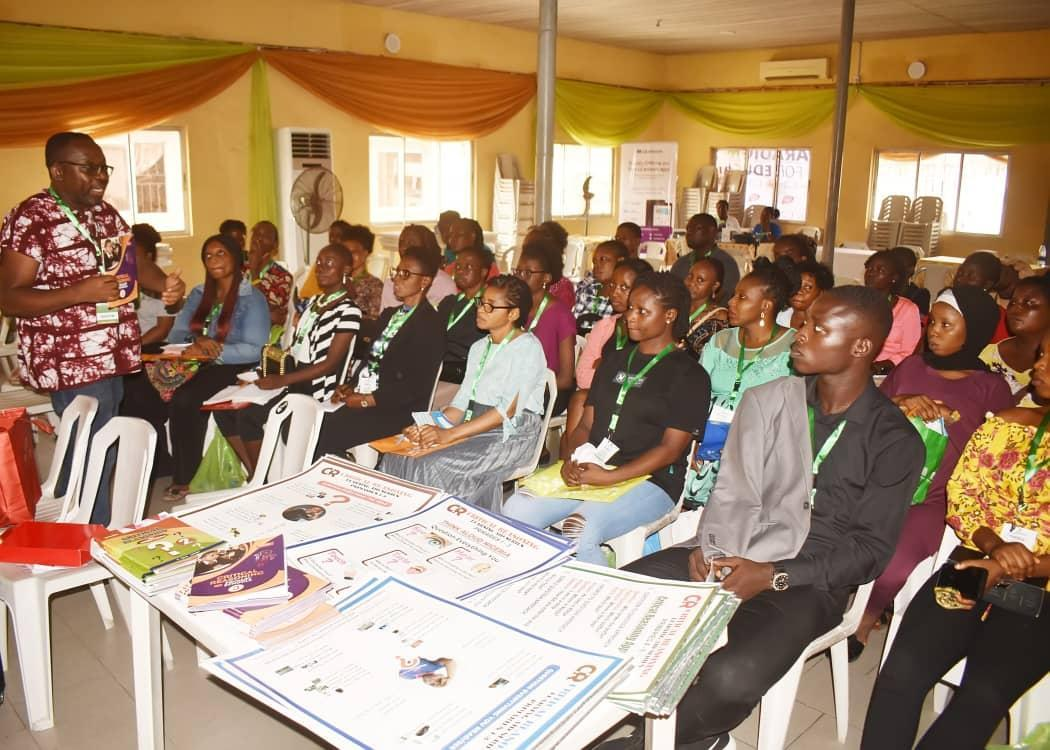
With that, he practiced what he was saying and opening up to questions from the audience.
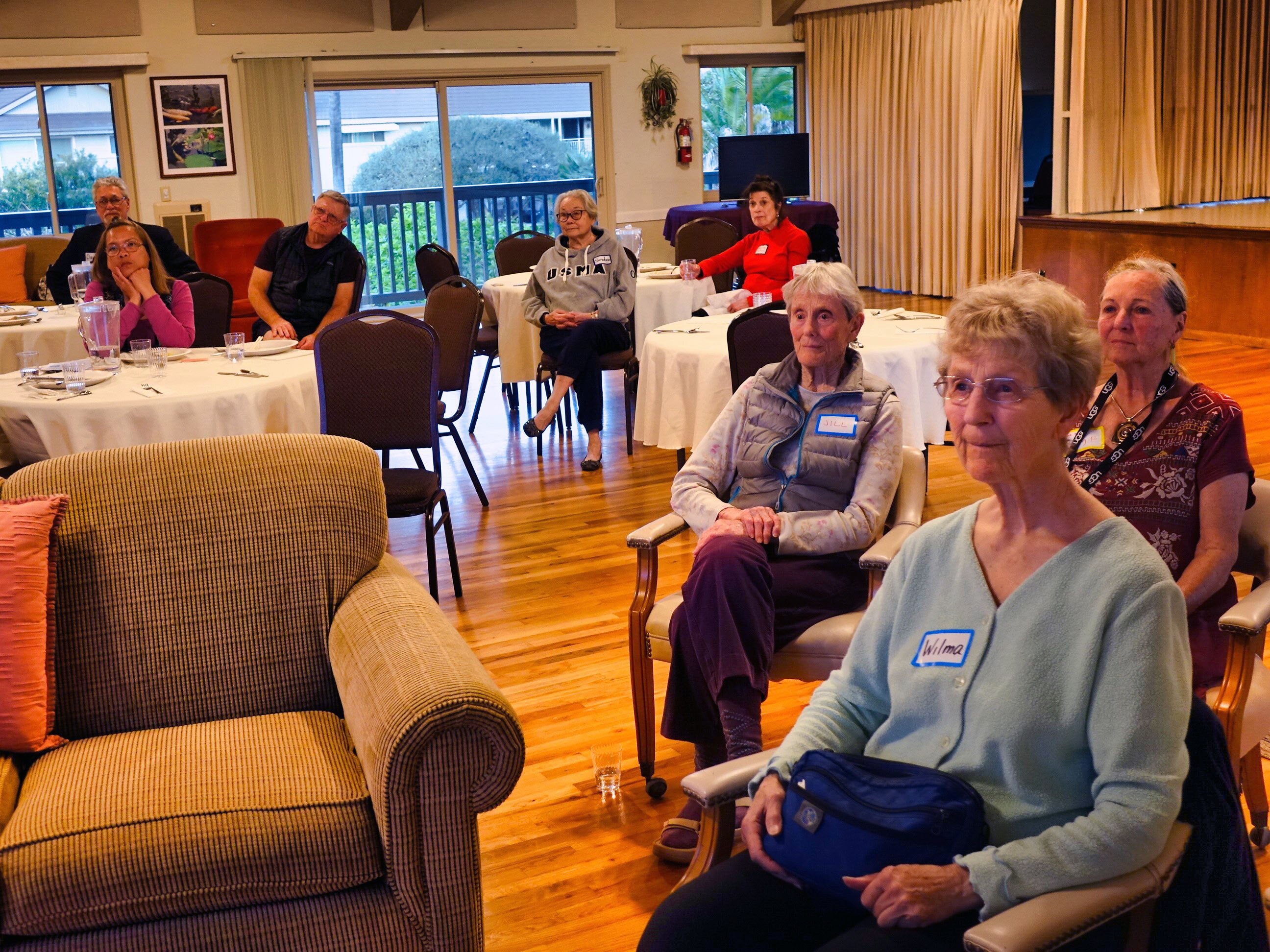
Paul in the Zoom chat asked about the idea of Ubuntu. Igwe said this always comes up when he speaks. He said it was an innovation hundreds of years ago, but it is really out of date.
“Ubuntu” is sometimes translated as “I am because we are”. It is sometimes explained in short maxims such as “A person is a person through other people.”
Igwe notes that we have information that was not available in the past. Cultures are dynamic and our ideas should evolve.
I asked him for an example of the questionstorming process. He brought me up to the front and whispered a question and I gave him the answer: 1964.
Then he turned to the audience and asked them to generate as many possible questions as they could that might be the question he had asked me. Here were some:
What year were you born?
What year did you learn to drive?
What year did you graduate high school?
My favorite was from HSSB Board member Dave Flattery:
How many cubic centimeters was the engine of your first car?
Interestingly, his question was closest to correct in my case in terms of that number 1964. And I liked that he thought outside the box that 1964 might not be a year.
But Igwe’s question to me did in fact involve 1964 as a year: “What year did you first fly in an airplane?”
This exchange made me a bit uncomfortable. It seemed unfair to the audience. I contrasted it with the Socratic method. In that method, both parties ask and answer each others’ questions. The genius of a game like “20 Questions” is that the players ask questions that converge on an answer.
However, I do also understand Igwe’s point. He said that young children may not be able to participate in a Socratic dialog. But they can learn just to ask lots of questions. Without necessarily caring if they are the best questions. It is a habit and a skill just to ask lots of questions.
A woman named Kerubo in the Zoom chat wanted people to know the name of the woman in the first photo, who was pleading for her life. Her name is Sindege Mayaka from Marani, Kisii County, Kenya. Kerubo’s ancestral homeland. The man with the machete is Amos Nyakundi. He is one of 16 suspects charged with the murder of four women, including Sindege Mayaka. The case is ongoing.

HSSB Board member Judy Fontana asked about the training of teachers. They need to be taught critical thinking if there is any hope for the students to learn this skill. She said she had experience in Mexico with this.
Igwe replied that their teaching materials now are just for primary grades 1-3. But he said that at the Davos World Economic Forum there was talk about the need for teaching critical thinking. These are the skills needed for the 21st century.
Ron asked about teaching in English vs in the local language. Igwe said that there are 200 ethnic groups in Nigeria, each with its own language. He said that colonialism brought the benefit of imposing the common language of English. He noted with a smile that it is “Nigerian English”.
As noted above, he said their workbooks allow young children to write in their local language. But in high school and college he said it is appropriate to emphasize English.
HSSB Board member Gary Noreen talked about the Kahn Academy and CK12.org as free resources for learning. He suggested that phones can be used to access such materials perhaps in an easier way than textbooks.
I personally cannot imagine the tedium of looking at a tiny screen and poking at it. Perhaps tablets or laptops would work better at the same cost.
But he also raised the idea that CK12 offers a free AI tutor that can ask and answer questions in a dialogue with the student.
In general, it would be ideal if Igwe could use resources that already exist. Igwe agreed that he did not want to re-invent the wheel.
Igwe used the term “informaction” in terms of education and social change. It combines information and action.
In the case of witchcraft accusations, people often have no idea what causes illnesses. During the time of the Black Death of the plague in the 1300s, thousands of Jews were burned to death in Europe. Based on the belief that the disease was somehow caused by a Jewish conspiracy.
This mistaken thinking continues today in Africa with accusations of witchcraft. Igwe said that people need to learn what really causes diseases. They need to practice good hygiene and go to real doctors.
And people who are accused of witchcraft need to go to the police. The attackers need to be prosecuted to end this brutal practice.
For more information about Dr Igwe’s critical thinking project and to donate to support it, please go to https://www.critthink.africa/
At the end, Dr Igwe kindly posed with the HSSB Board members and some other attendees. For more information about upcoming events with the Humanist Society of Santa Barbara or to become a member, please view and/or join the HSSB Meetup Group: https://www.meetup.com/humanist-society-of-santa-barbara/
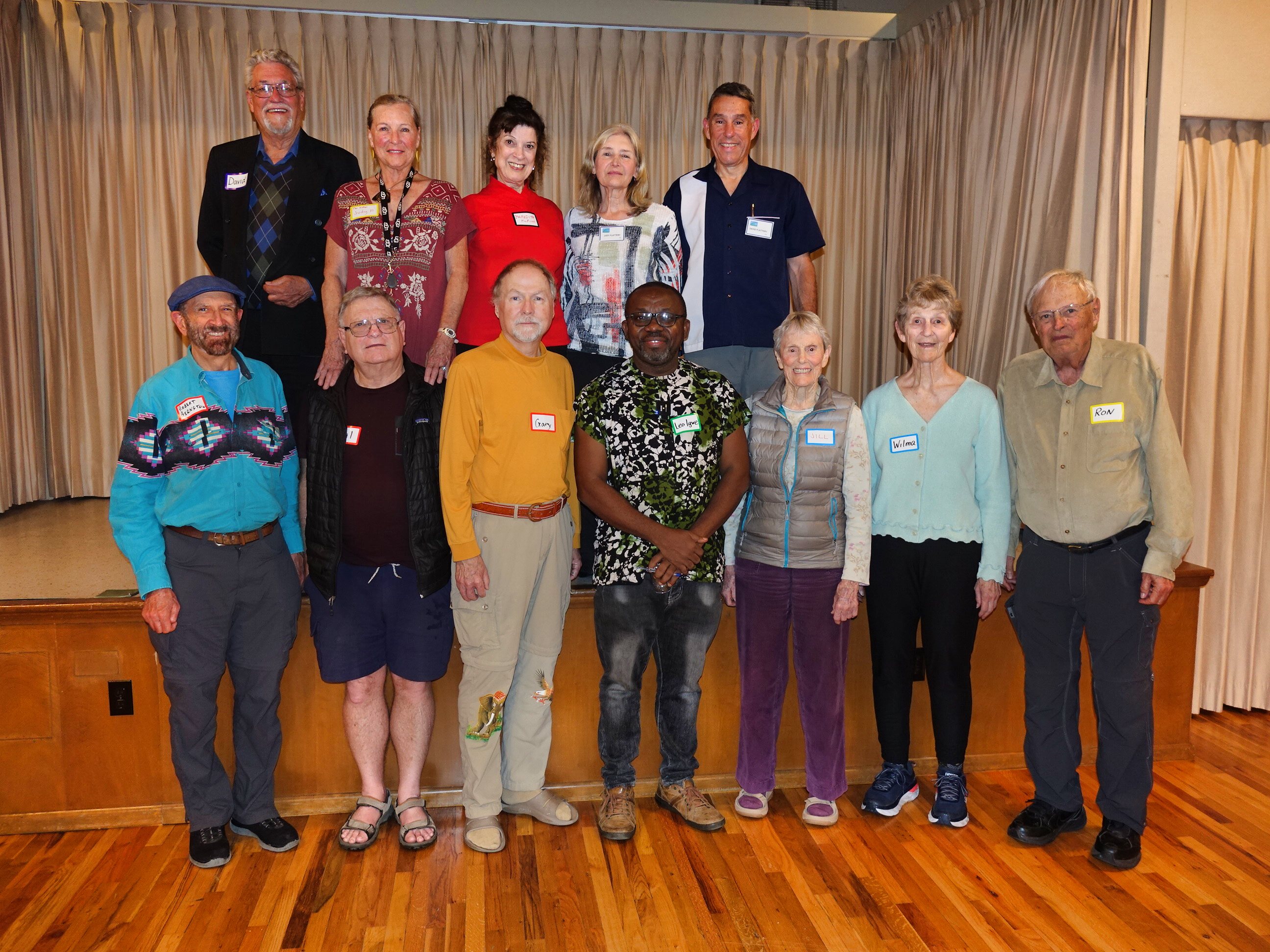








Great write up, thank you.
@coatlique13 Thank you for the kind words.
The whole world (including the US) needs more people like Dr Leo Igwe. We all need to ask good questions and consider how we know something is true.